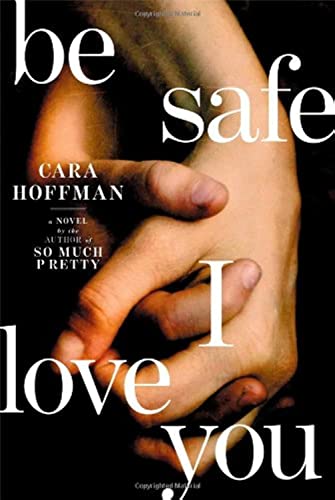Lauren Clay comes home from a tour in Iraq to no fanfare. She wanted to surprise everyone she loves so she didn't tell them she was coming. She's especially eager to see her younger brother Danny, for whom she was the caretaker for so many years after their mother abandoned them and their father sank into a deep depression. A naturally gifted singer, Lauren gave up a chance at further training in order to enlist to ensure Danny a better, more secure life than the one she lived. When she comes back into town, she is somehow different in ways that no one can quite explain. Thinking that she just needs time to readjust, no one worries or wonders about the pent up anger she is clearly carrying. The town is full of military and former military so they understand that reentry will be a prolonged and personal experience for her as she comes to terms with all the changes that her five years gone have wrought. But ex-boyfriend Shane, best friend Holly, voice teacher Troy, her father, and her 13 year old brother all overlook, or maybe just don't want to acknowledge, the fact that Lauren isn't okay and she carries deeper, darker scars than they can even imagine. In fact, she is spiraling out of control, hallucinating and confusing reality with memories and stories, and she needs help.
When Lauren comes back to the US, she's been fast tracked through her out processing because she doesn't show any signs of being at risk. She has plans for the future and a family waiting for her. But what she discovers at home bears little resemblance to what she left when she enlisted. Her brother is a typical teenager. He spends hours on his phone and his computer. The mother who abandoned them as children is interested in their lives and willing to be present for both Danny and Lauren if they want. Ex-boyfriend Shane went off to college and his world perspective no longer matches Lauren's. And the biggest change of all, her father is no longer depressed. When she discovers that it only took a couple of months on anti-depressants to regulate him and pull him out of bed after she left, she is angry and bitter that he didn't solve this problem before. But his re-emergence also serves to strip her of the caretaker role she fully expected to reassume when she came home. Having her expectations collapse, even for a good reason, leaves her floundering to define her new role. And it is in this life of uncertainty, one that she can't quite believe is safe, that Lauren starts to exhibit more and more signs of PTSD.
Lauren as a character is frozen and remote from everyone, including the reader. She does show flashes of fire when her anger erupts occasionally, when she cannot keep it tamped down in the place where her memories from Iraq are stored. She works so hard to keep that fire contained, not letting it melt and consume the stark, white blankness inside of her, because she doesn't want to remember the terrible things she did or the tragedy she saw. Running off to the Jeanne d'Arc Basin in the middle of winter, on her way to meet up with Daryl, the fellow soldier and close friend with whom she made future plans, accurately reflects her inner mental state. She is a character who needs the reader's sympathy but whose inexplicable rage towards those she cares about tests that sympathy time and again. There are a couple of secondary plot lines that don't add much to the story and seem either out of place or just filler doing nothing to illuminate the main story line, including Lauren's best friend Holly's relationship with Patrick; Troy, Lauren's voice teacher's oft repeated locally accepted lack of intelligence; and ex-boyfriend Shane's discussion with his current girlfriend about Lauren. And there were pieces missing from the story. What Lauren experienced and saw in Iraq had such a horrific effect on her but the telling of that story is saved for the end of the novel where it is not really explored in depth at all. The epilogue is promising but too easy, leaving out all the hard work of getting to that place mentally and emotionally. But the book as a whole is an important one, shining a light on PTSD, and PTSD in a female soldier at that. It feels like a very real, very raw situation and doesn't allow the reader to turn away from the results of soldiering that don't show on the surface but that lurk deep in the psyche. Emotional wounds are no less vital to treat than the physical ones and Hoffman has made that incredibly clear in the heartbreaking and broken character of Lauren.





I had wondered about this novel so I'm glad you shined a light on it. I'm not sure I will get to it but I might. I still need to get to the war book Redeployment which won a lot of awards. I agree PTSD is an important issue to highlight
ReplyDelete